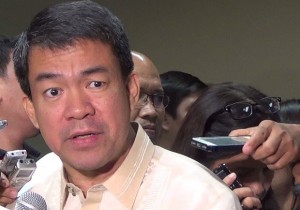Pimentel to look into Judiciary Development Fund
MANILA, Philippines — The head of the Senate’s justice committee plans to study the Supreme Court’s Judiciary Development Fund to check how much discretion it affords officials and how it was used in the past.
Senator Aquilino “Koko” Pimentel III said he and his staff would be the ones looking over the JDF, and there were as yet no plans to schedule a hearing on the matter. There are no pending bills seeking to abolish the JDF, Pimentel noted.
Pimentel said he saw the good the JDF could bring and was less antagonistic to the court’s fund than the House of Representatives, whose justice committee head, Iloilo Representative Niel Tupas Jr., is endorsing a bill to abolish the fund.
According to Pimentel, he planned to study the JDF because it has become the subject of public discourse as a result of recent issues confronting the nation.
“Since it’s already the talk of the town—it’s a burning issue—I and my staff will revisit the presidential decree providing for the JDF. I’m not necessarily calling for its repeal,” he said in a phone interview.
Article continues after this advertisementHe will look into whether the law is specific enough in how it is to be spent, whether the JDF or portions of it are clearly designated to be used for specific items.
Article continues after this advertisementHe also wants to know how the JDF has been spent over the years, what the judiciary plans to do about it, and why the court says its funds are usually not enough. He noted that the judiciary has been asking for a bigger percentage of the budget.
In connection with this, he said he intends to scrutinize the report that the Supreme Court is expected to submit to the Senate finance committee as part of the budget process.
Pimentel said the JDF, which is sourced from court fees and is used to provide allowances to court employees, could be an incentive for the judiciary to improve the judicial process.
“If the judiciary will increase the public’s trust in the judicial system, then the JDF collection will increase, therefore benefiting them. The system is self-rewarding if the judiciary will think of outside-the-box solutions now to the people’s complaints against the system,” he said.
A better-functioning judiciary will mean that more people will flock to it for help, and this will generate more earnings for it from filing fees and the like, he added.
The House of Representatives started the scrutiny of the JDF after the Supreme Court struck down the core activities of the Aquino administration’s Disbursement Acceleration Program. House officials, though, denied this was a retaliatory move and said it was part of the system of checks and balances in light of the court ruling against discretionary funds.
RELATED STORIES
Palace House allies to SC: We are also supreme
No ‘resbak’ in bill to amend judiciary’s discretionary fund—Fariñas
